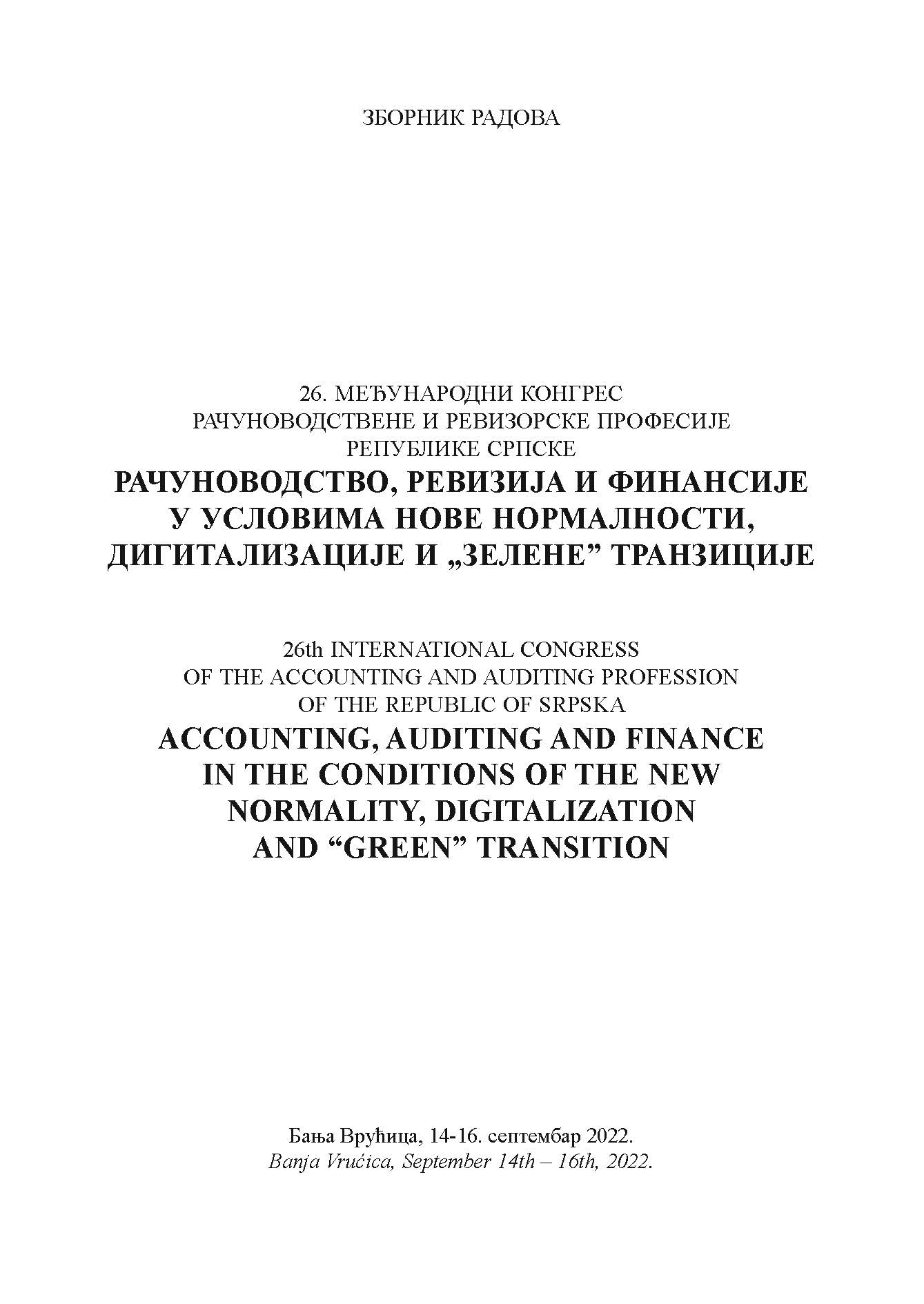РАЧУНОВОЂЕ И РЕВИЗОРИ У ВРТЛОГУ ДИГИТАЛИЗАЦИЈЕ
ACCOUNTANTS AND AUDITORS IN THE VORTEX OF DIGITIZATION
Author(s): Mirko Andrić, Milan Lakićević
Subject(s): Accounting - Business Administration, ICT Information and Communications Technologies
Published by: Savez računovođa i revizora Republike Srpske
Keywords: accounting reporting; audit; digitization; audit application software;
Summary/Abstract: The development of information technologies marked the era of digitization, introducing a new dimension of technical and technological progress at speed we did not expect. The changes caused by the digitalization phenomenon are visible in all spheres of economic and social life. The accounting profession could not remain outside of these processes. The subjects of our attention in this paper are the benefits, challenges and limitations that digitization brings to the accounting profession. Information is of crucial importance for the effective management of business information. Timely, true and reliable information is mostly generated by accountants. Their quality and credibility are further increased by auditing. The essence, philosophy and purport of accounting are not changed regardless of the significant difference between manual accounting and the modern digital era. Digitization enables faster, more efficient and more complete data collection, their selection and processing, as well as the generation of reports in different forms. On the other hand, there is a very pronounced limitation, of the so-called information entropy, when the volume of information and data overwhelms the system. It used to be difficult to get certain information. Now, the situation has drastically changed, and the essence of the problem is reflected in the ability to find what is needed in the sea of information. It is thankless to make predictions about what will happen, even in the near future. We hope that the era of digitization and artificial intelligence will not reduce the role of the accountant to performing simple data entry operations. Otherwise, the accounting profession will not survive. We hope that with the development of artificial intelligence, man will not give up his own. This conclusion also applies to the accounting profession.
Book: 26. МЕЂУНАРОДНИ КОНГРЕС РАЧУНОВОДСТВЕНЕ И РЕВИЗОРСКЕ ПРОФЕСИЈЕ РЕПУБЛИКЕ СРПСКЕ
- Page Range: 9-20
- Page Count: 12
- Publication Year: 2022
- Language: Serbian
- Content File-PDF

